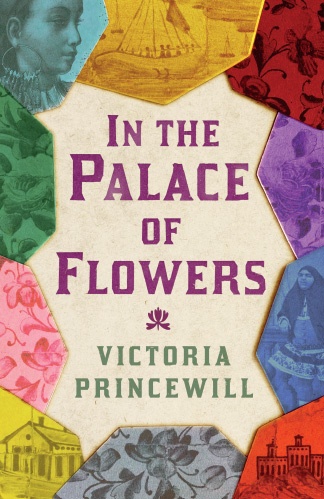
Victoria Princewill
SHE / HER / HERS
Victoria Princewill is a cultural transformation consultant focused on forgotten people and communities. A Fellow of the Royal Society of Arts (FRSA), her academic background spans both the arts and STEM. She combines neuroscience research in psychiatric epidemiology and narrative’s impact on empathy to assess how we navigate power dynamics and professional cultures in order to create organizational trust and improve health more broadly.
To continually subject my practice to the question: what do we owe each other and what do we owe ourselves?
Popular Talks
Equity and Inclusion, storytelling and empathy in society, and the future of work. Victoria makes a point of interrogating the sound bites that sound right, peeling back the layers so we can get the nuance and the truth. The truth is uncomfortable, but we’re all in it together. The audience is usually agreeing, laughing and learning — or at least, that’s what they tell me.
Speaking, Workshops, Consulting, & Coaching
Workshops
I offer workshops inspired by post-traumatic growth models and my own research and professional experience (completing a Neuroscience Masters degree whilst being a novelist). I focus on how narrative at the individual, interpersonal and institutional level determines the health of an organisation and how we can shape that so it can flourish.
Consulting
I advise and consult for organisations on culture change management, on building or retaining trust, on equity and inclusion and all things pertaining to organisational culture with regards to the future of work, but also in schools and all organisational spaces.
“Victoria is an engaging and charismatic speaker, she gave a compelling speech at Eton, inspiring thought provoking questions and conversations from our students.”
– Andrew Isama, Master at Eton College
“Victoria is a marvellous public speaker, and her energy and passion are contagious! Her book was the top-seller of the festival weekend.”
Rebecca Rideal, Founder & organiser of the HistFest 2022
“We found Victoria’s insights extremely valuable in progressing forward.”
– Mercy Abel, for Penguin UK
“Victoria chaired a demanding and complex British Library event on crowd-sourcing archival research, with sensitivity and careful preparation. She supported both the audience and the panel throughout an interactive session, tapping into the deep themes and bringing the session into the light with grace and energy.”
– Bee Rowlatt, Cultural Events Producer for British Library



Victoria Princewill, FRSA is a British author, essayist, and researcher, of west African descent. With an MA Oxon in Literature from Oxford and an MA in Philosophy from UCL, she is currently completing another Masters in Neuroscience at King’s College London.
Her first book, “In the Palace of Flowers”, a historical novel, was one of The Times’ Radio’s Top 5 Novels of 2021. It was recommended by Harvard University, and named by African Arguments as one of the Best African Novels of 2021. Set in 1895, was inspired by the real-life protagonist Jamila Habashi, and tells the forgotten story of educated enslaved Abyssinians, a product of the Trans-Saharan slave trade, who served as advisors and concubines in the Qajar court of Iran, pursuing lives of meaning whilst navigating the geopolitical landscape of the Great Game, and rising nationalism, ahead of Iran’s first constitutional revolution.
In 2021, Victoria signed a two book deal with Scholastic. Victoria’s most recent essay, “What’s in a Name?” for Granta magazine, was endorsed by Pen/Faulkner & deemed “Best of the Literary Internet” by Literary Hub. She has bylines in the Guardian, Independent, n+1 magazine, the LRB, gal-dem, the BBC & more.
Victoria’s breadth of expertise reaches into the corporate sector as well. Having started as a management consultant for Accenture, she has advised a breadth of clients from tech scale-ups to financial services giants like UBS & RBS and advised 300 senior executives at Penguin. She brings her neuroscience research in psychiatric epidemiology and narrative’s impact on empathy, to assess how we navigate power dynamics and professional cultures to create organizational trust and improve health more broadly.
Let’s collaborate to ensure a transformative experience.

